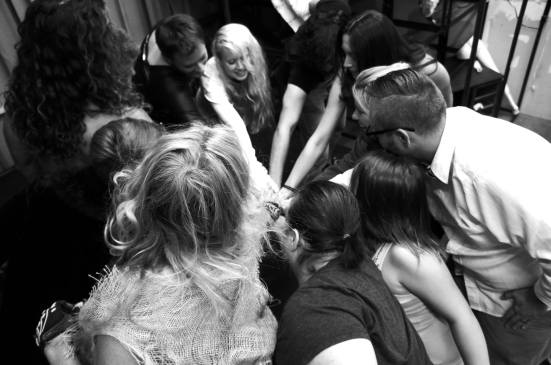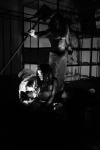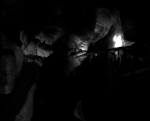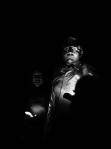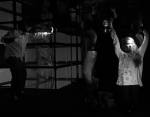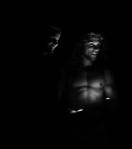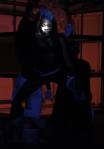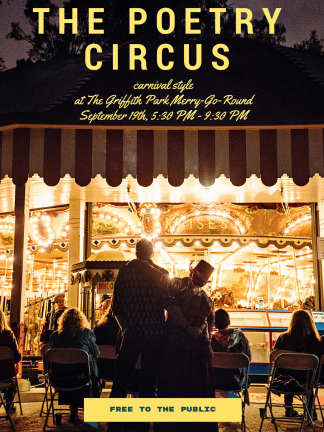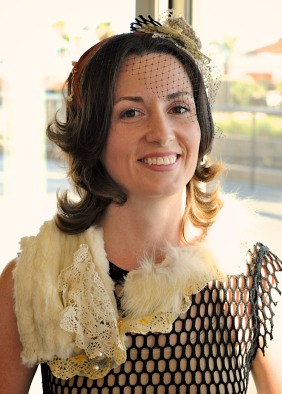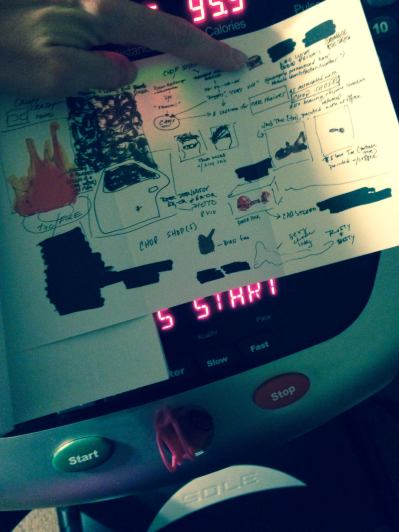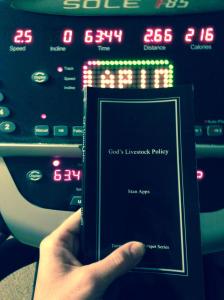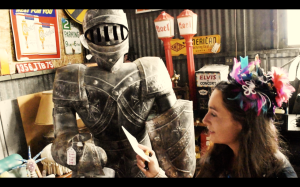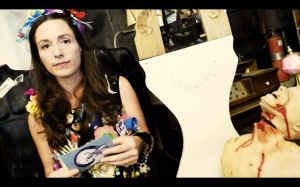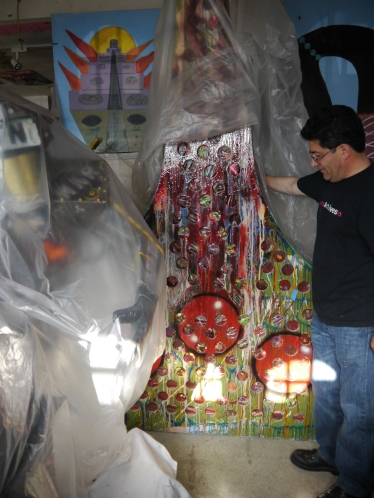
 What does it mean to be American? I’m not sure if there is an easy answer for this question, however I see what American means to me when I look at Edwin Vasquez.
What does it mean to be American? I’m not sure if there is an easy answer for this question, however I see what American means to me when I look at Edwin Vasquez.
Edwin Vasquez loves his family; the father of three brilliant and beautiful children, he has worked endless hours as a grocery store checkout clerk to allow his kids a chance to attend Harvard University. After a long day of work, Edwin goes out of his way to support his local art community—attending art openings, interviewing artists, and promoting work he believes in. Once he is done enabling the dreams of others, he steals a little time (the hours that most people use to sleep) to work on his own art. Edwin has created an entirely other world out of found object; his work investigates what it means to be an artist—what it means to be Guatemalan—what it means to be a US Citizen.
Because most of his time is spent supporting the work of other artists, his own work has remained mostly unseen. It is a world he holds within his home in the High Desert. There isn’t a single moment, not one, that is untouched by art in the Vasquez home. There isn’t a moment of Edwin’s life untouched by his generosity. There isn’t a moment of Edwin’s work that doesn’t create a sense of joy—a freedom beyond the political. His is a spirit that works hard to create opportunities for others while maintaining his artistic life. There it is, in Edwin: American.
Recently, the store where he has been a loyally employee for years, closed only to reopen and rehire employees at lower salaries. This is the other side of America—one that lives for numbers instead of lives. So perhaps Edwin Vasquez isn’t American, but rather the America I was taught to dream for and pursue—the American spirit that I believe in despite the corporate America that has been thrust upon us.
I invite you to enter Edwin’s world—to consider for a moment a better world.

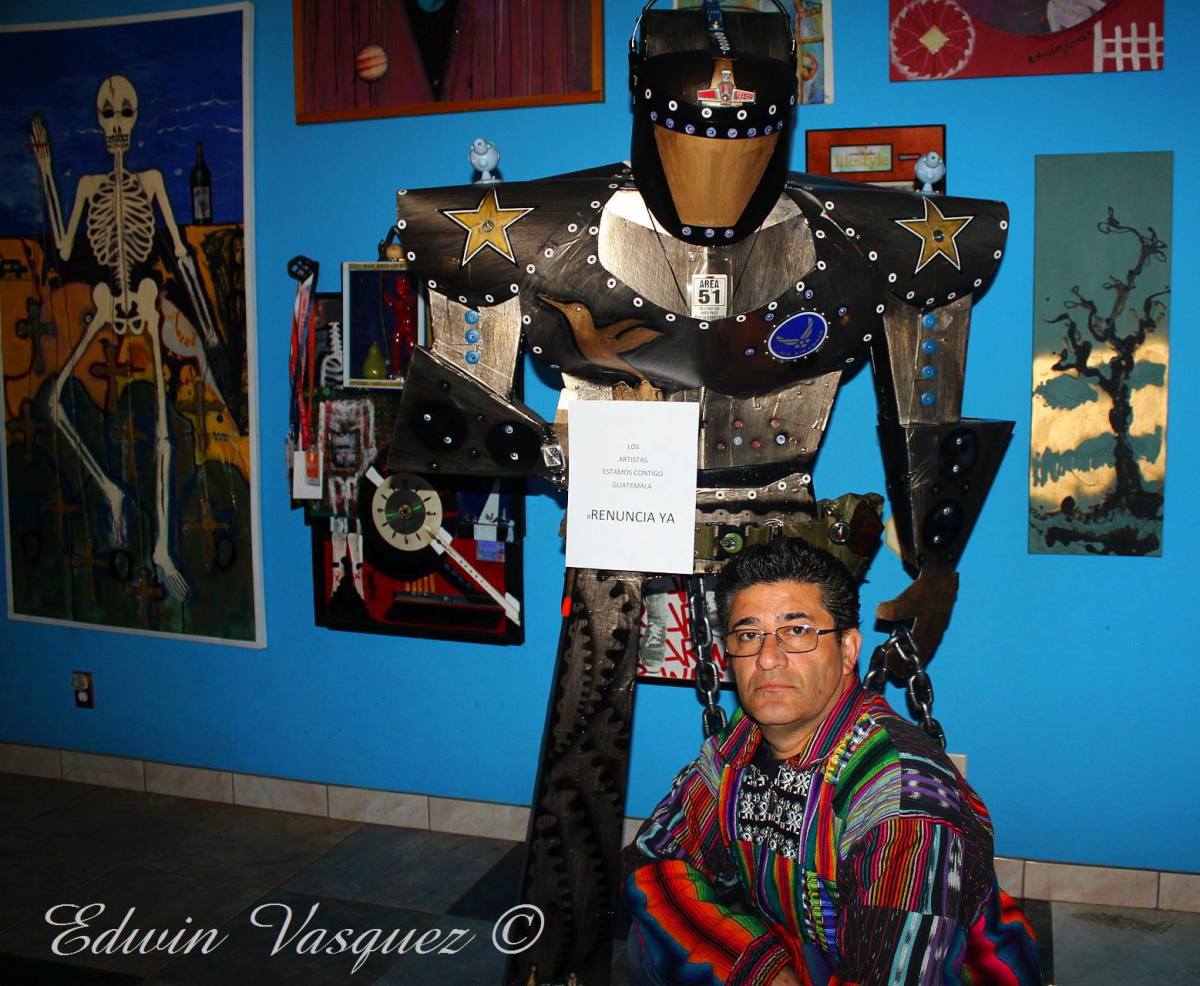
Interview: Edwin Vasquez
Tell me your story.
Describe growing up in Guatemala:
I was born in Quetzaltenango, Guatemala, the second most important city in the country and the center of art and culture. Art has always been part of my life. My father was a poet, played acoustic guitar and sang, and liked to draw.
I liked to hang out at a coffee shop called the Blue Bird, where intellectuals, professors, poets, journalists, and musicians came together to discuss cultural and political events. It was a difficult time to grow up in, because the country was experiencing an internal war that lasted forty-five years.
At the time, anybody who had a voice and talked on behalf of the less educated were persecuted, so many artists left the country and immigrated to Europe and the United States.
Moving to America:
My mother sent me to the U.S. I never asked her the real reason why she did that, but I think it had to do with the political situation. Now, I will never know the real reason, because she passed away.
Becoming an American Citizen:
As soon as I came to America, I tried to assimilate into the culture and customs. I worked really hard to learn the language. I once wrote that English is like an addiction, because I struggle everyday with it.
How art helped you with each of these transitions:
For many years, I was told I was not going to be successful, so I had many doors close for me. I didn’t start creating art until I got married to my wonderful wife, Alison. In her, I found a friend and a partner who allowed me to be completely free. It was at that point that all my ideas started flowing.
What do you hope for your art?
As a self-taught artist, I create my art without a premeditated idea or concept. I try to create mixed media art with any recycled materials available to me. Sometimes, the materials are limited, so it is not possible to create a series. Each piece is unique, allowing the viewer to discover and create their own interpretation.
History will decide how good my art was based on the body of work I am leaving behind.
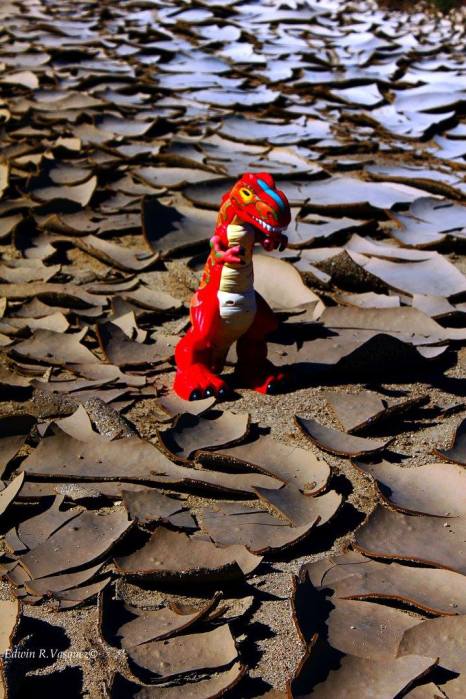

Poetry by Edwin Vasquez
TV
While looking at your picture
alone at my desk,
for no reason at all
this image came to my mind.
You sitting on the bed
on the right side, I recall.
You called me and told me to sit down
next to you.
I was very young then.
You told me to look
at the images on the TV
or movie screen perhaps.
CAN YOU SEE IT, SON?
CAN YOU SEE IT?
What magnificent images,
great colors and sound
WOW!!!
It is just great.
Dad, all I see is dust,
and a white cloth nailed to the wall
nothing more.
I love you so much,
so I followed your imagination
and pretended it was real.
So young,
just a kid,
how could I understand?
the powerful
destruction
of
alcohol.
ENDLESS PLAY
Hollywood, the endless play with real life actors,
those with rags and riches walking among the stars
and dancing the waltz of all nations,
where all dream how awesome meeting a movie star could be.
The seasoned actors make their moves unceremoniously
across the hot concrete stage, hustling the unsuspected tourists
drinking coffee or Red Bulls, while attempting to take selfies
with faking smiles
and overflowing the sidewalks like hot lava rivers from Brea to
Vine,
unaware of the homeless trying to sleep because it was yet
another bad day.
Hollywood, glamour and seventy-five degree weather,
where the scent of urine is overpowered by cigarette smoke,
Chanel, Yves Saint Laurent, or illegal weed,
where walking the long boulevard becomes another meaning,
where it feels real and, then, it hits you —
here, poets pick the stanzas just by opening the senses and
realizing, sadly, that the golden promise is nothing but fool’s
gold.
Hollywood, the endless play
with characters and fake superheroes,
Gucci glasses and skateboarders,
where Starbucks and tarnished stars
compete with IPhones and Barbie dolls…
this endless play, where actors come for a piece of the pie
and end up living a new tomorrow
for the second act and their broken dreams.


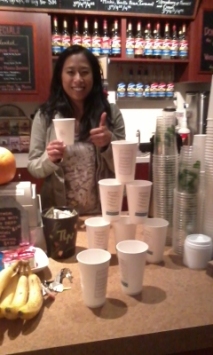


 What does it mean to be American? I’m not sure if there is an easy answer for this question, however I see what American means to me when I look at Edwin Vasquez.
What does it mean to be American? I’m not sure if there is an easy answer for this question, however I see what American means to me when I look at Edwin Vasquez.











